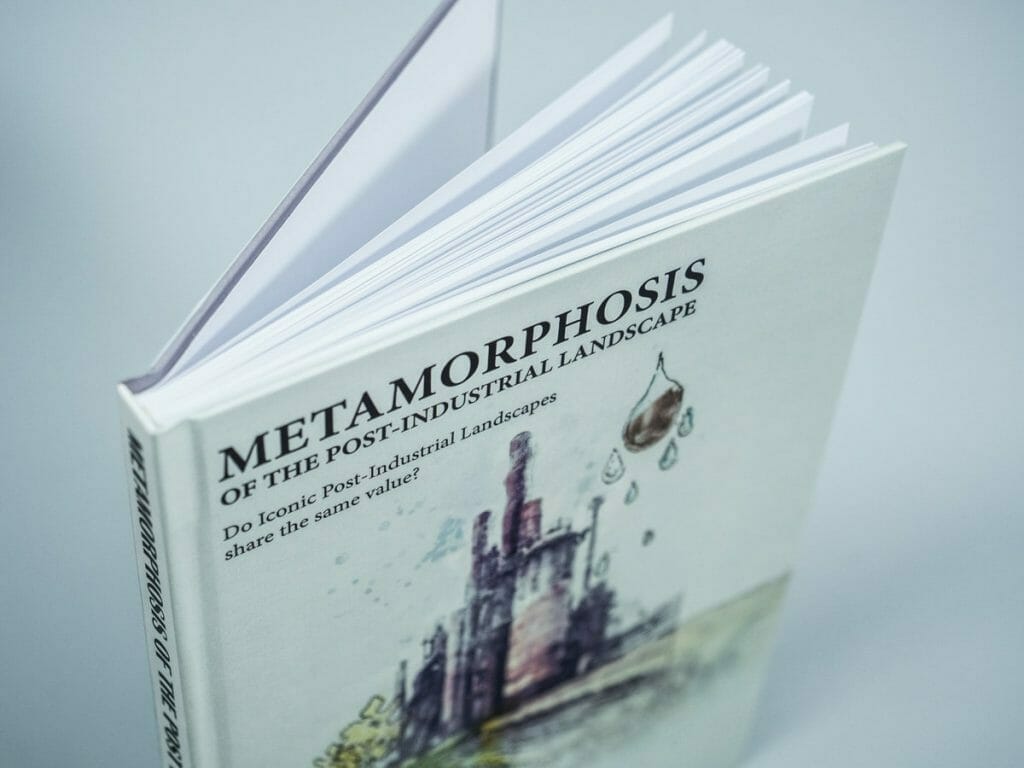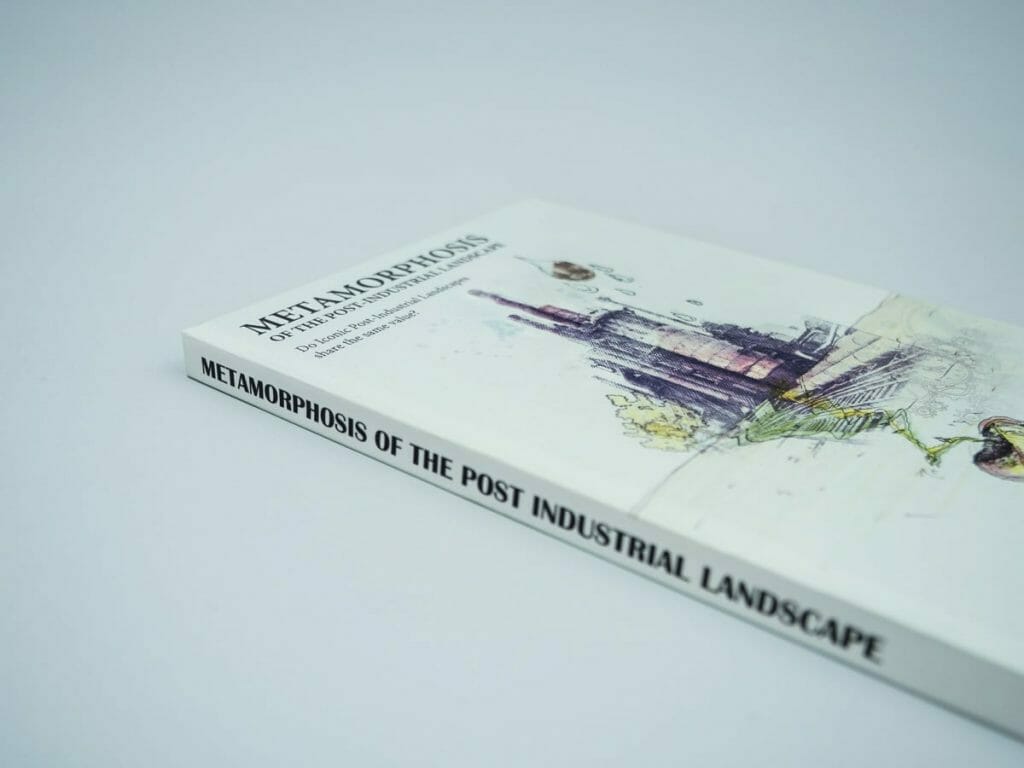
Unsure how to write a dissertation?
Scratching your head over dissertation structure?
Read our dissertation writing guide for top tips and advice including:
- Real life dissertation experiences from graduates
- Topic choosing advice
- Dissertation formatting and structure advice
- Time management, organisation and motivation tips
- Dissertation schedule and timetable
- Dissertation writing resources
- Dissertation printing and binding guidance
First things first – what is a dissertation?
According to Oxford Dictionary, a dissertation is ‘a long essay on a particular subject‘.
Collins Dictionary describes it as a ‘written thesis‘ and ‘formal disclosure‘.
Writing a dissertation can be a daunting prospect for anyone. But it needn’t be the beastly task that it’s made out to be.
It’s a chance for you to explore a topic of your own choosing and the opportunity to do so should be relished.

A dissertation is often completed in the final year of study – when you are hopefully at your most knowledgeable and the glory of graduation is just around the corner.
It should be the pinnacle of your academic career.
Dissertation experiences
One thing is certain, your dissertation experience will be unique.
From your topic and research methods to your findings and conclusions, no dissertation is the same.
Factor in guidance from different supervisors, your levels of motivation, work habits and time management and no two students will have the same experience.
We’ve had a chat with a few students, who have kindly shared their dissertation experiences with us – from the best thing and the worst thing to what they wish they knew and their advice for students.
What was the best thing about doing your dissertation?
It helped me better understand the subject and showed me that I don’t necessarily need someone at the front of the room to teach me things.
It was an opportunity to research a topic I was passionate about in real depth.
It was a way to showcase my work and produce a professional document to take with me into the workplace.
Research and learning. Going into an interesting and as yet un-researched subject in depth. Researching a subject I was really interested in and coming to a conclusion I wasn’t expecting.
The overriding theme here is that writing a dissertation allows you to a) choose a topic of interest to you and b) research it in-depth.
What was the worst thing about doing your dissertation?
Not deciding quickly enough what I wanted to write about leading to a lack lustre effort on a subject I wasn’t a hundred percent invested in. It was a huge commitment, both in time and effort. Too much information collected and working out what was really needed.
The pressure of having it printed and bound – I didn’t do more than flick through it between printing it and handing it in.
The late nights, the anti-social behaviour I expressed, the addiction to coffee (I hate coffee.) Knowing you had to see a tutor in two days and there was no chance they would be impressed.
The stress. I’m always last minute. So writing it up was a race against time!
The most common problem area is fairly predictable – time pressure!
What do you wish you knew before doing your dissertation?
Research techniques and how to structure writing. Time management.
I wish I had got a draft of each chapter proof read by more than one person. Feedback early on is invaluable and helps you build a structure for your dissertation.
That you have to be so on all ball, organisation is 50%, statistics the other 50%.
How much 25,000 words actually is. How the structure of the paper is made up of different sections in more detail so that it doesn’t seem like one big daunting boulder of a task. I wish I’d known that there are so many more resources than what I was aware of at the time – for example industry professionals.
The biggest knowledge gap appears to be the written structure of the dissertation.
What is your top tip for students doing their dissertation?
Start research early, it’s the worst bit. Once it’s over done and analysed, writing up is the easy part. Also, don’t be daunted by a word count – 10,000 words is really an intro, conclusion and 3 chapters at 2000 words each – much more manageable.
Start ASAP and don’t procrastinate. Organise yourself, be honest with how little you have done and talk to tutors regularly.
Complete it a week early! Don’t leave it until the end of your time limit. Start early and finish early so you can rewrite things if you need to.
Start early and get talking about it with your lecturers. Begin researching what interests you half way through the second year and keep lots of notes!
The top tips are all time-orientated. The student stereotype involves late nights and a furious last minute slog but this can all be avoided with effective planning.
Dissertation Writing Resources
Dissertation requirements will vary slightly depending on your course and university.
Your university will provide you with relevant guidance material for writing your dissertation and your supervisor should be available to answer questions.
This dissertation writing guide aims to supplement the information you may receive from official channels.
But if you are in any doubt, consult your supervisor. Some universities share their dissertation guidance online, so visit their website or search online.
For example:
Bath University
Bristol University
Kent University
Choosing A Dissertation Topic
Whilst choosing your own topic may seem difficult, it is an exciting opportunity for you to explore an area of interest in greater detail.
It is important to find a topic that you are passionate about, as this will motivate you to completion.
Start by brainstorming subject areas and topics that pique your interest. Your background reading will no doubt shape your decision too. Once you have settled on a shortlist of ideas, consider:
- Is the topic academically significant? Would it be of interest to an academic audience? Or is it too trivial?
- Can you be objective about this topic? Do you have preconceived ideas that may lead to bias?
- Is it manageable within the allotted time? It is always better to employ a narrow focus.
- Is the topic relevant to your potential future career path? Is it something you could talk about at a job interview?
Planning Your Dissertation Structure
Before writing your dissertation, you must seek clarity on the following:
- Dissertation word limit – upper and lower (and what this includes e.g. text in tables)
- Chapters and order – do you have to adhere to a pre-set structure?
- Classification of content types (e.g. what needs to go in the appendices?)
Formatting & Structure
A common structure has been outlined below:
Research Proposal:
- Title page
- Abstract
- Acknowledgements
- Author’s declaration
- Contents page
- Introduction
- Literature review
- Methodology
- Results/findings
- Discussion
- Conclusions
- References (and/or bibliography)
- Appendices
Title Page:
A title page usually includes:
- Dissertation title
- Full name
- Statement of format (example below)
- Institution (university) name
- Date submitted – month and year
- Name of your supervisor
Example – statement of format: A dissertation presented to <name of your university> in fulfilment of requirements for the degree of <degree type e.g. Bachelor of Arts> in the faculty of <course name>, <month><year>. By <full name>.
Abstract:
An abstract serves as a short summary of your dissertation. It should inform the reader of the following:
- The topic you have researched
- Why you have chosen the topic
- The research methods used
- Your results
- Final conclusions
Your abstract should be written once the main body of the document is completed.
Acknowledgements:
This section gives you the opportunity to acknowledge all those who have provided help or guidance throughout your dissertation research and writing process.
This may include fellow students, lecturers, tutors, librarians or industry experts.
Table of Contents:
The table of contents will provide an overview of your dissertation structure and will make reading and page referencing easier.
Introduction:
Within this section, you must share the aims and objectives of your research as well as describing your hypothesis and key questions.
Identify the significance of your research topic and describe the specific methodology that you will be using.
You must also note your research exclusions e.g. areas that you did not have the time or resource to consider at this stage.
Your introduction should be simple, concise and practical.
It will set the scene for the remainder of your dissertation, so it is vital to establish the correct tone and use language appropriate for an academic audience.
Literature Review:
At this stage, you need to critically review existing research.
A successful literature review should:
- Identify themes within the existing research
- Implement your methodology to analyse papers
- Identify your contribution to the existing research
Structuring your literature review chronologically (as you read the material) is often not the best choice.
Instead, consider a historical discussion or alternatively, group studies together into separate schools of thought.
Methodology:
The methodology is the place to outline your research framework.
You should discuss:
- Research methods
- Data collection process
- Data analysis process and significance testing
- Justify your methodology – why is it appropriate?
Results/Findings/Discussion:
Your results, findings and discussion are the place for showcasing and discussing your valuable research findings.
Areas to cover include:
- Description of results
- Display of results
- Interpretation of results
- Evaluation of results
- Strengths of your research
- Weaknesses of your research
- Limitations of your research
Conclusions:
Your conclusion should address the research question that you initially posed.
Do your results provide a convincing argument? You must demonstrate reasoning for all conclusions.
At this stage, you can also identify potential future tangents for your research – what could be researched further?
What are the implications of the research?
References & Bibliography:
You must include a bibliography and/or references section.
You must cite and credit all sources.
Failure to do so can lead to inadvertent plagiarism, so be sure to reference sources properly and in line with the required style (e.g. Harvard Referencing).
If you’d like additional assurance that your work is plagiarism free, you can use an online service such as the Scribbr Plagiarism Checker.
Appendices:
The appendices should showcase your research materials (such as surveys and questionnaires) and any other items which are relevant to your research methodology.
All items must be numbered in order.
Editing & Proof-Reading
The best approach to editing and proof-reading is usually to do it as you go – section by section.
If you decide to edit your entire dissertation in one go, it will be overwhelming. So keep it bite sized instead.
A good editing technique is to write, take a break and review. Rinse and repeat.
Don’t attempt to write things perfectly first time around. You will cut sections out, rephrase things and add new bits. It is a regular part of the editing process.
It is often useful to write your introductions last. That way, you’ll have more familiarity with what you’re introducing.
It is always best to edit with fresh eyes, so go distract yourself for an hour or two before sitting back down and editing your latest written work.
When sharing your work with others, break it down over a period of time. Ask them for feedback on a per section basis. This will make feedback easier to handle and the subsequent edits easier to manage.
Time Management
Are you a serial procrastinator?
If so, you need to be even more concerned with time management.
Time management can be a key issue for students researching and writing their dissertation.
To help you to achieve your goals, it is wise to create a checklist and schedule from the start. This is something that you can discuss with your dissertation supervisor.
A simple timetable works well. Block out your busy times – e.g. when you have lectures, work or other regular engagements. This will identify your available time. You can then assign these available sessions to your dissertation.

You may be tempted to allocate large blocks of time to your dissertation, however this is not always the best option.
Your concentration and motivation will wane if you spend more than a couple of hours working on it. So look for shorter personal study periods (up to 2 hours or so), or break-up a long session with a different activity for a short-time.
Stay on track with a dissertation schedule and plan out daily activity with a weekly timetable. Establish a minimum daily writing target and commit to it. This may be timed (e.g. “I will write for a minimum of 15 minutes every day”) or based on word count (e.g. “I will write 300 words per day”).
You should regularly increase your daily writing target as your study skills develop.
Some students base their initial goal on a simple calculation:
Required word count / number of available writing days = number of words per day
E.g. 10,000 word count / 40 days = 250 words per day
You should also consider your habits – are you an early bird or a night owl? When are you at your most productive? This should influence your study time decisions.
As the weeks go by, you will find a comfortable stride. As your to do list grows shorter, you will hopefully feel more motivated to cross the finish line!
Organisation
It is vital to remain organised throughout the dissertation research and writing process.
This will involve structured and ordered note taking during the research phase. You must keep an accurate record of all sources, as they will need to be cited within your bibliography and/or references.
Being thorough and ordered with your note taking will benefit you in the long-run, as it will make quoting and referencing a far easier task.
Invest in a series of quality notebooks and trusty pens!
It will be useful to file your notes within a tabbed ring binder. You can then categorise your notes by theme or topic as require, for future reference when writing.
Study Location

In addition to setting time aside to work on your dissertation, you must consider your studying location.
Do you trust yourself to stay committed when working in your room alone? Are you easily distracted by social media and cat memes? Or would you be better suited to a shared environment such as an IT room or the library? Or perhaps studying with a fellow student?
Find out what works for you and mix it up when required. A change of scenery will help from time to time.
Motivation
How to stay motivated is the killer question.
But only you can recognise the quality of your study habits and level of motivation at any given time.
Your levels of motivation are affected by a range of factors, from your health and comfort to your social interactions, relaxation time and more.
Health
Good health is paramount to productivity. You should be undertaking regular exercise, eating well and drinking plenty of water.

Try your best to avoid turning to processed foods and caffeine fuelled drinks to see you through. Stay hydrated with water and snack on nuts, fruit and vegetables.
Comfort
Comfort is important, as you’ll no doubt we spending a lot of time sat at your desk.
Consider your posture and ensure you have a comfortable desk chair.
Your chair should support your lower back and your feet should rest on the floor. Your screen should be at eye level and the keyboard should be 4 to 6 inches in front of you.
Useful Links:
NHS – how to sit correctly TechRepublic – 10 ergonomic tips
Sleep
Sufficient sleep is also essential to good health.
You should be getting a decent amount of pillow time every night, so try and establish a regular sleeping pattern.
Aim for 8 hours per night and adjust as necessary.
When holiday time comes, try and stick to your routine and maintain your body clock.
Practising good sleep hygiene is also vital to your health. A bedtime routine is a key part of this, so start winding down at least an hour before bed. Consider a relaxing bath or hot shower. Minimise screen time (no late night social media scrolling!) and grab a book instead.
Useful Links:
NHS – 10 tips to beat insomnia
The Guardian – can’t sleep?
Sleep Foundation – what is sleep hygiene?
Rewards
Associate small rewards with the completion of specific tasks.
It could be anything from a latte in your favourite coffee house to a trip to the cinema with friends. Or even a gold star on your wallchart.

You could also benefit from listening to a motivational playlist, doing regular exercise and eating well.
Monitor Progress
Keep track of progress with your study schedule and checklist or to do list.
Evaluate your process often and physically mark off where you are. This will help you to stay on track and remain encouraged.
Keep In Touch
It’s important to keep in regular touch with your supervisor. They are there to help and guide you, so if you have come to a stumbling block, have questions or generally need some support, get in touch!
It is also important to stay in touch with your friends and loved ones. Surround yourself with encouraging people – do not isolate yourself from others.
You may think it will help increase your productivity if you eliminate all distractions, but it is much better to take a balanced approach.
Whilst your dissertation is a key focus, it shouldn’t encompass all aspects of your life. Make time for other things that matter.
Relax
Everyone needs to relax from time to time. Go outside, take part in activities or sit back and have a little Netflix binge, go shopping. Do whatever you enjoy. Be sure to incorporate relaxation time into your schedule. Ensure that some of your relaxation time is spent in productive ways (e.g. reading, exercise), but set aside some true downtime too.
Stay Tidy
Tidy desk, tidy mind! Clear and tidy your desk at the end of each day so you can have a spotless work space the next morning.
Printing & Binding Your Dissertation
Once you’ve completed your dissertation, you will need to think about printing and binding it before submission.
You must identify which type of document binding your university will accept and order accordingly.
Hardback and paperback book binding are two popular options, followed by wire binding.

Book binding will offer durability, as well as a customisable spine and a professional look.
Wire binding is a lower cost option, however it is not usually as long lasting.
You should also consider how many copies you require. Perhaps you want a couple of extra copies as a souvenir for your parents or relatives? Delivery time is an additional consideration. The sooner you order, the greater peace of mind Your options for printing and binding will include:
- On-site at your university – many universities have a print/binding facility available for students.
- Local print shop – your local printers
- Online dissertation printing – Doxzoo.com provide a high quality, affordable dissertation printing and binding service to students throughout the UK and beyond. Your document can be uploaded 24/7, styled and previewed online and delivered within 24 hours!
Dissertation Examples
Reading dissertation examples can help you get a feel for an appropriate academic writing style and structure. Where can you find dissertation examples?
- Ask your supervisor or course leader
- Your university library
- Your university website
- Ask friends who have already graduated
- Search online – search generally or by subject and topic. For example, Bristol University has a selection of publicly available dissertation examples.
Useful Google search queries:
- site:ac.uk “dissertation example” [your subject]
- site:ac.uk filetype:pdf “dissertation example” [your subject]
Good Luck!
We wish the best of luck with your dissertation writing endeavour!
Click here to order childrens book printing
Looking for a reliable printing company?
Get an instant quote